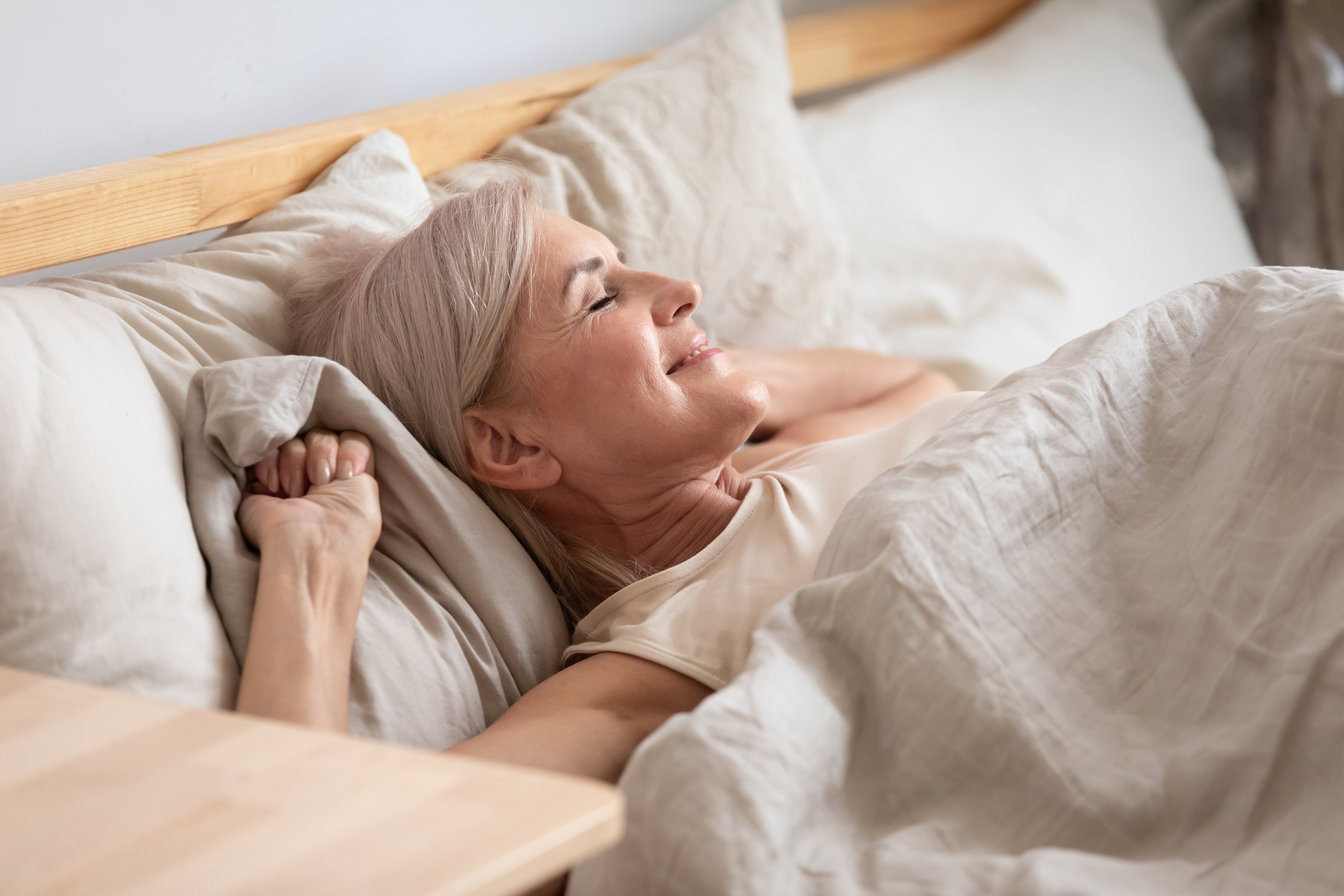As we get older, many of us find that we’re not sleeping the way we used to sleep. Do you have this problem? If so, you might find you’re having trouble sleeping at night or you’re falling asleep during the day. Why do older people struggle with sleep? More to the point, what can we do to fix the problem?
There are many different reasons you might not be sleeping well. If you can narrow it down and determine the cause, you may be able to solve your problem.
- Sometimes an illness or medical condition can keep a person awake. Things like arthritis, sleep apnea and snoring, and restless legs syndrome can often interfere with sleep. If you think one of these things could be causing your lack of sleep, talk to your doctor so that you can find relief.
- Maybe your medications are the culprit. This is another thing to discuss with your doctor. You may need to have your medications adjusted or switch to something that won’t interfere with your rest.
- Are changes in your life causing you stress? When we go through major life transitions like illness, financial trouble, or the death of a loved one, the stress can keep us from sleeping. Figure out how to manage your stress, whether this means talking to your family, meeting with a counselor, or trying mindfulness techniques, meditation, or yoga.
- Retirement can often throw off a person’s schedule. If you’ve recently retired, you may be less active during the day than you’re accustomed to being. You might be able to get more sleep if you stick to a schedule and keep your mind and body active. Consider volunteering, pick up a new hobby, get some exercise, or spend time with friends or family to remain active.
Now that you have some things to consider that may be disrupting your sleep, let’s talk about strategies for getting enough shuteye. How much sleep do you need, anyway? Experts recommend seven to nine hours per night, but that’s not set in stone. There’s really no right answer; sleep needs vary from person to person. If you’re sleeping less but you still feel refreshed and energetic during the day, it might not be a problem. If you’re feeling rundown, though, try these tips to make sleeping easier.
- Establish a bedtime routine. Be consistent about going to sleep and waking up at the same time every day and create a relaxing routine to help you signal your body that it’s time to settle down. Try a warm bath, drink a cup of tea or warm milk, or read for a little while- whatever it takes to help you relax.
- Calm your mind before bed. Don’t do anything particularly stimulating before you go to bed. Turn off all screens and put down your phone at least an hour before bedtime. Limit spicy foods and lively conversation in favor of quiet music and light reading in the evening.
- Make your bedroom a sanctuary. Create a sleeping environment that’s conducive to rest. A cool, dark room will help you sleep, and using layered covers in varying weights allows you to adjust your sleeping temperature as needed during the night. If noise bothers you at night, consider earplugs or a white noise machine. Make your bedroom a sleep-only zone, and if you find you’re still awake 20 minutes after you go to bed, get up and read or do some other calm activity until you’re ready to sleep.
- Don’t drink alcohol before bed. It might make you feel sleepy, but that glass of wine is likely to cause you to wake up when it wears off in the middle of the night. In fact, limit all fluids before bed, so you can skip the midnight trip to the bathroom.
- Use pillows to get comfortable. Especially if you have body aches, adding some extra pillows can help. Replace your mattress if it’s getting old and isn’t providing the right support.
- Get some sunshine during the day. Ideally, get some exercise outside, to wear yourself out and help your body understand the light cues of day and night. Be sure to wear sunscreen any time you’re outside.
- Skip the afternoon nap. If you’re tired, it might seem like it makes sense to take a nap. However, if you’re making naps a habit and you can’t sleep at night, your daily siesta may be interfering with your sleep.
Getting enough sleep is an important part of a healthy lifestyle, and at Parkwood Heights, we prioritize the health and happiness of our residents. That’s one of the reasons this is a great place to live your best life. A lovely community in which to spend your retirement, Parkwood Heights is located just minutes from Victor, Fairport, Farmington, and Canandaigua. Our picturesque, 122-acre senior living campus affords many opportunities to enjoy your time with friends and family, while enjoying our scenic setting. Call (315) 986-9100 to learn more about all that we have to offer, or check out our website and reach out if you have any questions.






